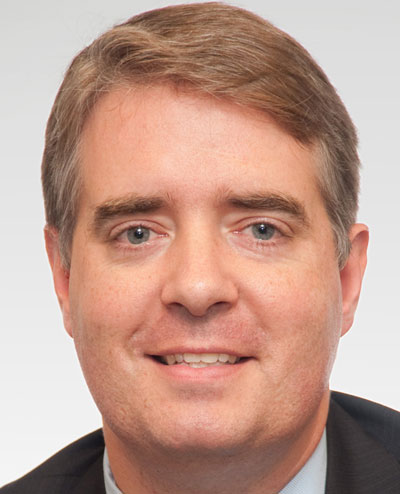Sep 30 2021 / Annual Meeting
READ 00:04:16
Get off the bus
Topics Covered
Are you on or off the bus?
In our industry, it seems that the most likely cause of death for our clients is getting hit by a bus. When I started in the industry, I was trained to ask a client, “What would happen to your family if you were hit by a bus today?” Then I would sit back and let prospects dream up horrific ways that they could die and the tragic consequences that would happen to their family. We would expect, like any rational person, that once anyone stopped to think about these disasters, they would want to buy as much insurance as we could sell them.
I learned how to really drive home this point by using a four-square approach and showing prospects how their families would be devastated when one of the spouses passed away. This was intended to create a feeling of family obligation and urgency, which was supposed to have the end result of the families immediately signing up for insurance.
This approach did several things: It increased my closing rate, but the size of my commissions shrank, and my referrals plummeted. The prospects felt guilted or scared into buying the insurance. The last thing they would be willing to do was to refer me to their family and friends so that they could also enjoy the shame and guilt and listen to all the horrible things that could happen to their families. If prospects did buy, it was typically the minimum amount of insurance they needed to get me and their spouses off their backs. I was now working harder to meet new prospects.
I took a step back from my practice and realized that the referrals and the larger cases I did earn came from those clients who had a more positive experience working with me. I came to realize that clients did not want to be guilted or shamed into buying a product, especially not in front of their spouses. If I don’t enjoy talking about my own death and illnesses, why would I expect my prospects to? I had been creating stress, anxiety and a negative experience with my prospects.
In our industry, we are able to rattle off the percentage chance of a death, critical illness or disability to our clients. In order to create a more positive experience, I flipped the statistics. Rather than telling prospects that they have a 7 percent chance of dying and a 22 percent chance of a critical illness before age 65, I would explain that what those odds mean is that they have a 93 percent chance of being alive and a 78 percent chance of being healthy into retirement.
Why would I do this? On the surface, it seemed like I had just talked them out of seeing the need for insurance at all. Instead, what happened was that I was now positioning insurance in a more positive way. I was advising clients that they needed to prepare for the most likely scenario, that they would be alive and healthy into retirement and that retirement income, estate taxes, family succession and legacy planning needed to be addressed. It made little sense to plan only for the least likely events to occur and not for the most likely.
I started asking my clients to envision their future and think about all the positive things that may happen along the way.
If my clients were professionals, I would ask them about their plans to buy a practice of their own, or to join a partnership, to develop a real estate portfolio, to grow their retirement income at a higher level than they thought possible, or to leave a legacy to their families or to their favorite charity, all of which would either require, or greatly benefit from, insurance.
Insurance now plays a vital role but in a positive way, allowing my clients to dream big and encouraging philanthropy. And, just in case, the insurance covers the risk of a premature death or illness while working toward their goals. My clients now leave my office feeling even more encouraged that they are also protecting their families along the way.
What came about as a result of this paradigm switch? My sales were higher, the number of closed cases increased, the size of the cases grew much larger, and my clients were eager to refer me to their colleagues.
To that advisor who comes to me asking about how to make it to MDRT, I say that the best thing you can do for you and your clients is to always look to create a positive experience. Help your clients dream of their bigger future and what is possible instead of what disasters could occur.
And stay off the bus!

Chris George, CFP, TEP, is a founding partner of Broadreach Strategic Planning Inc., a practice specializing in providing comprehensive financial planning for dentists. George serves on multiple Advocis national committees and is president of the Fraser Valley Estate Planning Council. He mentors new advisors, helping them to better serve their clients and achieve MDRT qualification.







